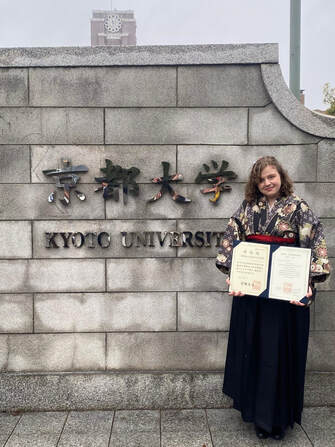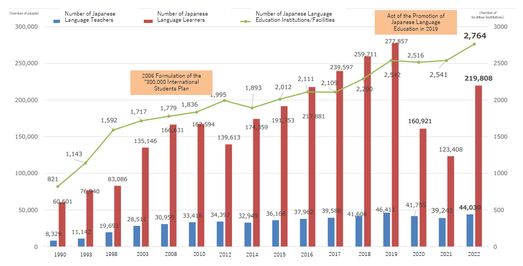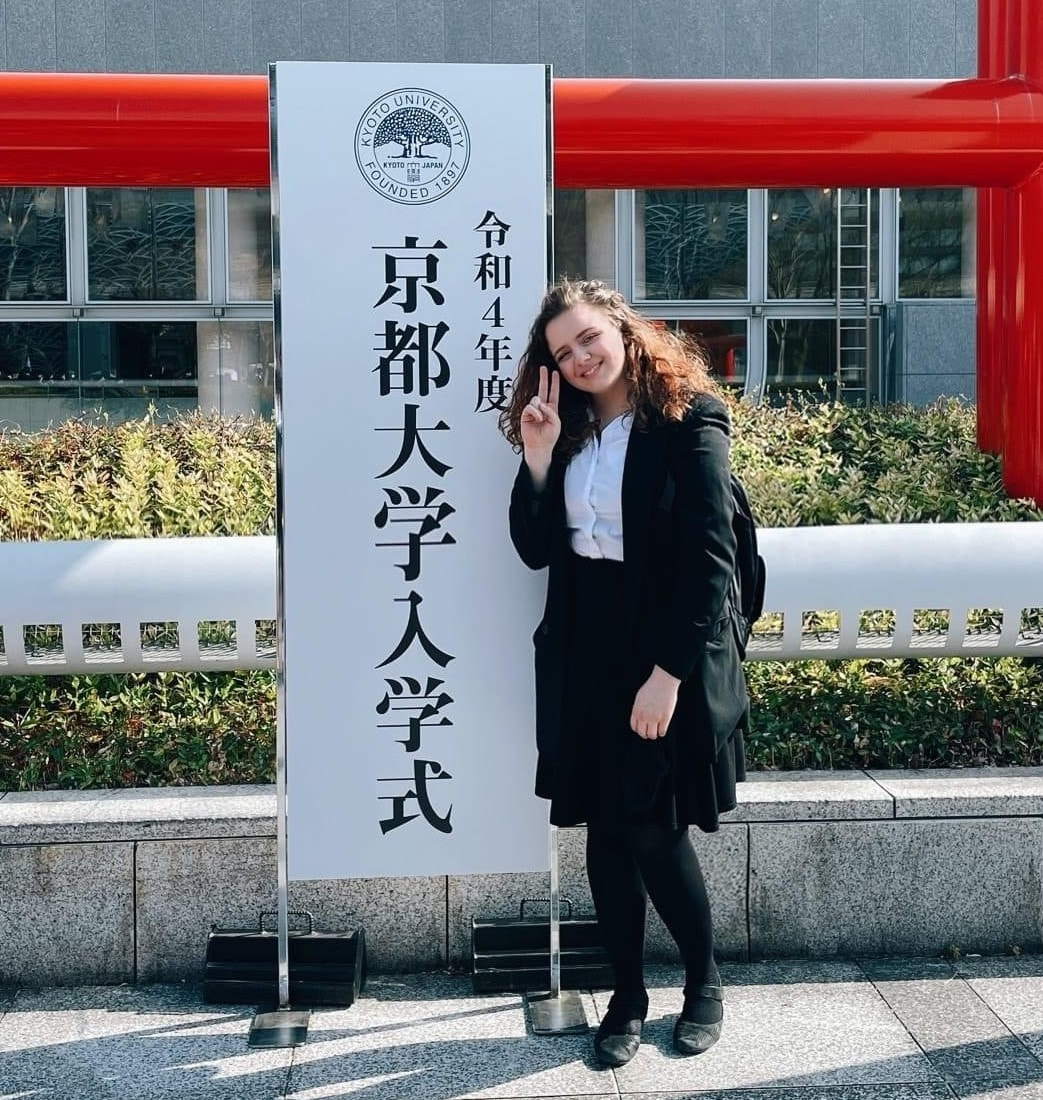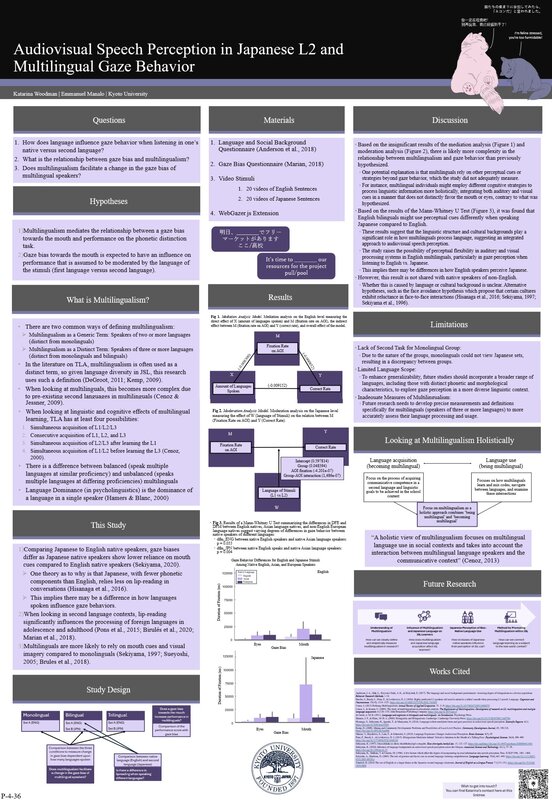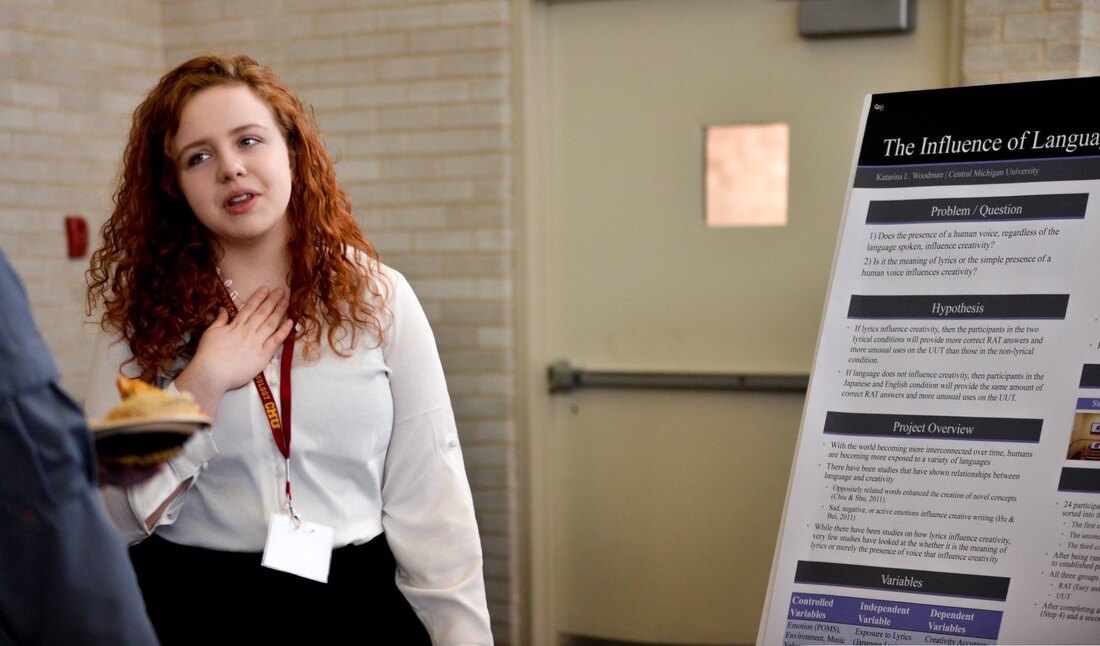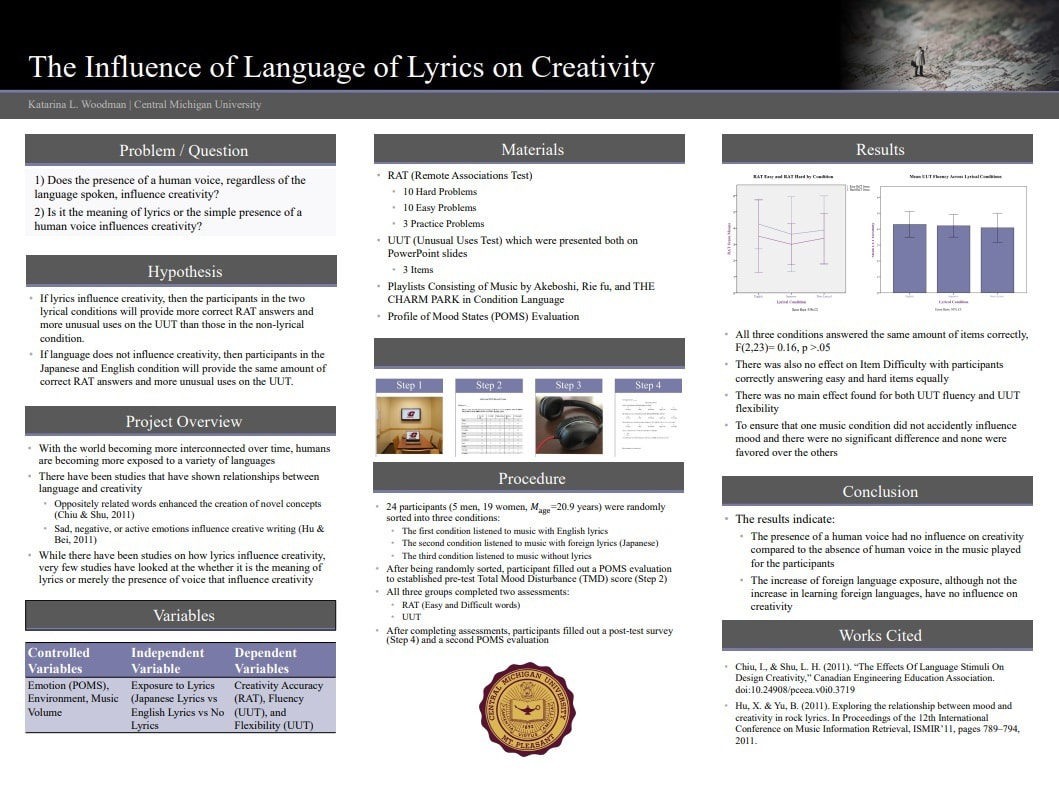My Research
|
Driven by a deep-seated curiosity for unraveling the intricate layers of the human experience, my pursuits encompass a diverse array of captivating realms, including the arts, psychology, and philosophy. I am uniquely interested in language and how its processed within the human mind. I use both a philosophical approach examining how we use language to conceptualize the world around us and a psychological approach in how language is processed in the brain. I am also uniquely interested in the use of different languages (notably Japanese and English) and their influence on multilingual individuals.
ー・ー 人間の経験の入り組んだ層を解明する深い好奇心に駆られ、私の追求は芸術、心理学、哲学など多様な魅力的な領域を包括しています。人々が周囲の世界を概念化するために言語をどのように使用するかを調査する哲学的アプローチと、言語が脳でどのように処理されるかについての心理学的アプローチの両方を使用することに興味があります。また、異なる言語システム(特に日本語と英語)の使用がマルチリンガルの心にどのような影響を与えるかについても、独自の興味を持っています。 |
Katarina Woodman
ウッドマン カタリナ [email protected] Links: University Page Research Gate Research Interests:
|
“The limits of my language means the limits of my world.”
「私の言語の限界は私の世界の限界を意味する」
-Ludwig Wittgenstein
Doctoral Course
博士課程
|
Kyoto University, Master's Graduation, 2024
京都大学、修士卒業式、2024年 |
Love Learning Lab (Emmanuel Manalo)
Doctorial Student・博士 Woodman, K. (2024). Audiovisual Speech Perception in Japanese L2 and Multilingual Gaze Behavior. 27th Meeting of Association for the Scientific Study of Consciousness. Tokyo, Japan |
Holistic Multilingual Perspective in Japanese Language Education
日本語教育におけるマルチリンガリズムな視点
|
The research explores the integration of multilingualism within Japanese as a Second Language (JSL) education, focusing on the challenges and biases faced by JSL learners and the potential strategies to overcome these issues to foster a more inclusive and effective language learning environment. The study aims to understand the dynamics between perceived biases towards JSL speakers and the actual biases present in native Japanese speakers, proposing teaching methodologies to mitigate these biases and promote a multilingual approach in Japanese educational settings.
|
本研究は、マルチリンガリズムを日本語学習(JSL)教育に統合することを探求し、JSL学習者が直面する課題や偏見と、これらの問題を克服するための潜在的な戦略に焦点を当て、より包括的で効果的な言語学習環境を促進することを目指す.この研究は、JSL話者に対する知覚された偏見と、日本人ネイティブスピーカーに存在する実際の偏見との間のダイナミクスを理解し、これらの偏見を緩和し、日本の教育設定でマルチリンガルなアプローチを促進するための教授方法を提案することを目的としている.
|
Study 1: Holistic Model of Multilingualism
計画1:マルチリンガリズムの総合的モデル
計画1:マルチリンガリズムの総合的モデル
|
This study focuses on creating a nuanced model for measuring multilingualism by incorporating both language acquisition and usage. It aims to account for the multifaceted nature of multilingualism influenced by social, individual, and contextual factors. The model proposes a composite factor score to represent the individual and social aspects of multilingualism, allowing for classification into monolingual, bilingual, or multilingual groups. Advanced analytical techniques will be employed to validate this model, with potential applications in further research, such as examining Japanese as a Second Language (JSL).
|
本計画は、言語習得と使用の両方を組み込んだ、マルチリンガリズムを測定するための洗練されたモデルの作成に焦点を当てています.社会的、個人的、および文脈的要因によって影響を受けるマルチリンガリズムの多面的な性質を考慮することを目指しています.このモデルは、マルチリンガリズムの個人的および社会的側面を表す複合因子スコアを提案し、一言語、二言語、または多言語グループに分類することができます.このモデルの妥当性を検証するために、高度な分析技術が使用され、日本語を第二言語(JSL)とする研究など、さらなる研究への応用が検討されています.
|
|
Language acquisition
(becoming multilingual) 言語習得(多言語を身につけること)
|
Language use
(being multilingual) 言語使用(多言語を使うこと)
|
Study 2: Japanese Acquisition and Cultural Identity of JSL Speakers
計画2:日本語習得とJSL話者の文化的アイデンティティ
計画2:日本語習得とJSL話者の文化的アイデンティティ
|
This study delves into the relationship of language and identity within JSL education, such as the acculturation and multilingualism and their impact on language acquisition, and the experience of "Japanese identity" in foreign residents in Japan.
|
本計画は、JSL教育における言語とアイデンティティの関連を明らかにし、JSL学習者の文化変容及びマルチリンガリズムと言語習得、及び「日本人としてのアイデンティティ」の形成に及ぼす影響を探求する.
|
|
The primary research questions are as follows:
|
研究質問は次の通りである:
|
Study 3: How JSL Speakers are Percieved in Japanese Society
計画3:日本社会における日本語を第二言語とする話者の認識
計画3:日本社会における日本語を第二言語とする話者の認識
|
This study examines the perception of Japanese as a Second Language (JSL) speakers in Japanese society, emphasizing the influence of in-group biases on language processing and the implications for JSL integration. The study aims to understand how biases affect language perception and learning, employing methodologies like surprisal value calculations and perceptual matching tasks to quantify in-group biases and their impact on language processing.
|
本計画は、日本社会における日本語を第二言語とする話者の認識を調査し、言語処理における内集団バイアスの影響とJSL統合への意味を強調する. 研究は、言語認識と学習にバイアスがどのように影響するかを理解することを目指し、驚き値の計算や知覚マッチングタスクなどの方法論を使用して内集団バイアスとその言語処理への影響を定量化する.
|
Expected Future Impact
予想される将来のインパクト
予想される将来のインパクト
|
Given the increase if immigration within Japanese society (Japan National Tourism Organization, 2023), the importance of addressing Japanese language use in immigrant communities is important. JSL learners face numerous challenges, such as the high cost of tuition at Japanese language schools, a lack of free or low-cost educational materials, a lack of practical opportunities after studying, and educational content that does not meet the practical needs of students (Ministry of Justice, 2022). This can also cause difficulties when integrating into Japanese society (Nagayoshi, 2021) as well as barriers for their children, who often find themselves in schools prepared only for Japanese children and families (Maruyama, 2018).
|
日本社会における移民の増加(日本国家観光局、2023)を受け、移民コミュニティにおける日本語使用に対処することの重要性が増している. JSL学習者は、日本語学校の授業料の高さ、無料または低コストの教材の不足、学習後の実践的な機会の不足、および学生の実践的ニーズに合わない教育内容(法務省、2022)など、数多くの課題に直面している. これは、日本社会への統合にも困難を引き起こす(永吉喜久子、2021)だけでなく、日本の子供や家族のためだけに準備された学校に通うことになる彼らの子供たちにとっての障壁となることもある(Maruyama、2018).
|
|
Multilingual education is becoming more widespread, with early English education and the introduction of a third language at later educational stages being recommended (Cenoz & Jessner, 2009). Therefore, this study aims to address JSL education in the context with a holistic view of multilingualism (Cenoz, 2013). The goal is to contribute to the overall understanding of JSL speakers and students by understanding their experiences in Japan, the barriers to acculturation and language acquisition, and the context in which they will speak and use Japanese with native speakers. By understanding these situations, it will be easier to create programs and policies addressing incoming immigrants and their children, allowing for a more harmonious integration into Japanese society.
|
マルチリンガル教育は普及しつつあり、特に早期の英語教育と後の教育段階での第三言語導入が推奨されている(Cenoz & Jessner, 2009). 本研究は、マルチリンガリズムの包括的視点(Cenoz, 2013)を持ってJSL教育に取り組むことを目指している. 目標は、日本での彼らの経験、文化適応と言語習得への障壁、および母語話者と日本語を話し使用する文脈を理解することにより、JSL話者および学生の全体的な理解に貢献することである. これらの状況を理解することで、移民および彼らの子供たちに対処するプログラムや政策を作成しやすくなり、日本社会へのより調和のとれた統合が可能になる.
|
Master Course
修士課程
|
Love Learning Lab (Emmanuel Manalo)
Master's Student・修士 Hitsuwari, J., Hayashi, T., Woodman, K., Liu, X., Takeura, K., Nishida, S., TO, M., & Nomura, M. (2023). Scent of Poetry: Influence of Olfactory Imagery during Haiku Appreciation on Aesthetic Evaluation. The 45th Annual Conference of the Cognitive Science Society, Sydney, Australia. Woodman, K. (2023). Audiovisual Speech Perception in Japanese Second Language Listening. International Conference on Embodied Cognitive Science 2023, Okinawa, Japan |
Kyoto University Entrance Ceremony, 2022
京都大学、入学式、2022年 |
Audiovisual Speech Perception in Second Language Listening
第二言語リスニングにおける視聴覚的言語認識
Keywords: Audiovisual speech perception, Japanese language education, JSL, bilingualism
キーワード:視聴覚的言語認識、日本語教育、JSL、バイリンガリズム
キーワード:視聴覚的言語認識、日本語教育、JSL、バイリンガリズム
|
The linguistic experience and language background are important to consider. In this study, we discuss how the native language spoken plays a key role in how individuals rely on visual cues, focusing specifically on Japanese L2 speakers (JSL). However, it is important to note that language background is important in this discussion. For instance, prior research comparing English and Japanese native speakers finds differing tendencies in their reliance on visual stimuli, as Japanese speakers have a weaker reliance on visual cues when compared to English speakers.
|
言語経験と言語背景は、考慮されるべき二つの要因である.本研究では、母語が視覚的手がかりへの依存度に果たす重要な役割について議論し、特に日本語を第二言語(JSL)とする話者に焦点を当てる.しかし、この議論において言語背景が重要であることに留意することが大切だ.例えば、英語と日本語の母語話者を比較した以前の研究では、視覚的手がかりへの依存度において、日本語話者は英語話者に比べて弱い傾向があることが明らかにされている.
|
|
The first question asks whether multilingualism influences a change in gaze bias toward the mouth based on evidence suggesting that multilingual individuals are more inclined to rely on mouth cues and visual imagery than monolinguals. This leads to hypothesis 1: Multilingualism mediates the relationship between a gaze bias towards the mouth and performance on phonetic distinction tasks.
|
「マルチリンガルがモノリンガルよりも口元の手がかりや視覚的イメージに依存する傾向があるという証拠に基づき、マルチリンガルが口元への視線バイアスに変化をもたらすかどうか」は第一の疑問だ.これにより、仮説1が導かれる:多言語性は口に対する視線バイアスとタスクパフォーマンスの関係が媒介される.
|
|
The second question explores whether gaze bias varies when listening to different languages, considering that bilinguals possess an integrated linguistic system of two languages. This leads to hypothesis 2: Gaze bias towards the mouth will affect performance, potentially moderated by the language of the stimuli, reflecting the intricate interplay between language background and bilingual cognition.
|
「バイリンガルが二言語の統合された言語システムを持っていることを考慮して、異なる言語を聞いているときに視線バイアスが変化するかどうか」を探るものは第二の疑問だ.これにより、仮説2が導かれる:口に対する視線バイアスは、刺激の言語(第一言語と第二言語)によって調整されるとタスクパフォーマンスへの影響を持つことが期待されている.
|
|
The results suggest that gaze behavior does not significantly mediate the relationship between the number of languages spoken and task performance. This finding indicates that participants' gaze focus doesn't substantially influence multilingualism's direct impact on task performance. Additionally, the study finds that the language of the stimuli does not significantly alter how gaze behavior influences performance. These results suggest that the original proposed models and hypotheses should be rejected. While gaze behavior is a crucial aspect of speech perception, its impact might be more complex than previously assumed, especially in the context of multilingualism.
|
結果は、視線行動が言語の数とタスクパフォーマンスとの関係を有意に仲介することはないことを示唆している.この発見は、参加者の視線の焦点がマルチリンガルによるタスクパフォーマンスへの直接的な影響に大きく影響しないことを示している.さらに、この研究は、刺激の言語が視線行動がパフォーマンスに及ぼす影響を有意に変えることはないことを発見した.これらの結果は、元々提案されたモデルと仮説を否定することを示唆している.視線行動は言語認識の重要な側面である一方で、特にマルチリンガルの文脈においてその影響は以前に想定されていたよりも複雑である可能性がある.
|
|
Additionally, post hoc analyses explored gaze behavior differences between native and non-native English speakers and the influence of cultural background on language use and gaze perception. This suggests that English background may uniquely impact language processing, particularly in the processing of Japanese in JSL English Natives.
|
さらに、事後分析では、母国語と非母国語の英語話者の視線行動の違いや、文化的背景が言語使用と視線知覚に及ぼす影響を探った.これは、英語の背景が言語処理に特有の影響を与える可能性があり、特に第二言語としての日本語の英語ネイティブスピーカーにおける日本語の処理に顕著であることを示唆している.
|
Undergraduate Course
学部の授業
Psychology・心理学
|
Central Michigan University, Undergraduate Graduation, 2021
セントラル・ミシガン大学, 学部卒業式, 2021 |
Autism and Alzheimer’s Research Lab (Kevin Park)
Undergraduate Lab Assistant・学部研究室アシスタント Perceptions Lab (Christopher Davoli) Undergraduate Lab Assistant・学部研究室アシスタント Psychedelic drugs and perception: a narrative review of the first era of research Research Assistant・学部研究室アシスタント The Association for the Scientific Study of Consciousness Conference Poster Presenter・ポスター発表者 |
The Influence of Language of Lyrics on Creativity
Keywords: foreign language exposure, creativity, Remote Associations Test (RAT), Unusual Uses Test (UUT), fluency, flexibility, music, lyrics
キーワード:外国語への露出、創造性、リモートアソシエーションテスト(RAT)、異常使用テスト(UUT)、流暢さ、柔軟性、音楽、歌詞
Central Michigan University, BS Psychology, Graduation Thesis (Unpublished)
キーワード:外国語への露出、創造性、リモートアソシエーションテスト(RAT)、異常使用テスト(UUT)、流暢さ、柔軟性、音楽、歌詞
Central Michigan University, BS Psychology, Graduation Thesis (Unpublished)
|
Senior Thesis Poster Presentation, 2019
卒業論文のポスター発表, 2019年 |
With the advent of technology, communication between individuals of all different cultures has become more common. Because of this, we are becoming more exposed to various foreign languages on a regular basis. However, despite the increase in foreign language exposure, there is little known about how this exposure influence our everyday lives. One question you could pose is: how does this exposure influence our creativity? To test this, participants were randomly sorted into one of three conditions and asked to take the Remote Associations Test (RAT) for creativity accuracy and the Unusual Uses Test (UUT) for creativity fluency and flexibility. Participants listened to music while completing the RAT and UUT with 1) lyrics in a language they were fluent in (English), 2) lyrics in a foreign language (Japanese), and 3) no lyrics (Non-lyrical). Results indicated that the exposure to a foreign language did not affect the creativity of the individual.
|
|
技術の発展により、異なる文化の個人間のコミュニケーションが一般的になってきた.このため、定期的に様々な外国語にさらされることが多くなっている.しかし、外国語への露出が増えているにもかかわらず、この露出が私たちの日常生活にどのような影響を与えるのかについてはあまり知られていない.一つの疑問としては、「この露出が私たちの創造性にどのような影響を与えるのか?」が挙げられる.本研究は、参加者はランダムに3つの条件のいずれかに分類され、創造性の正確さを測るリモートアソシエーションテスト(RAT)と創造性の流暢さと柔軟性を測る異常使用テスト(UUT)を受けた.参加者はRATとUUTを受ける際に、1) 流暢な言語(英語)の歌詞がある音楽、2) 外国語(日本語)の歌詞がある音楽、3) 歌詞のない音楽(ノンリリカル)を聴いた.結果からは、外国語への露出が個人の創造性に影響を与えないことが示された.
|
Philosophy・哲学
What it Means to be a Conventional Self
Keywords: No-self, anatta, atman, Buddhist philosophy, philosophy of the mind, selfhood, emptiness
キーワード:無我、アナッタ、アートマン、仏教哲学、心の哲学、自己、空性
Central Michigan University, BS Philosophy, Graduation Thesis (Unpublished)
キーワード:無我、アナッタ、アートマン、仏教哲学、心の哲学、自己、空性
Central Michigan University, BS Philosophy, Graduation Thesis (Unpublished)
|
In everyday life, we perceive ourselves as individuals rather than objects like trees. However, the concept of being a "person" raises fundamental questions about its meaning. Western philosophy has explored various theories to tackle this question, but Buddhist philosophy offers an alternative perspective. In Indian thought, particularly within Hinduism, the notion of an all-pervasive idea of the self called the "Atman" bears similarities to the concept of the soul. Nevertheless, Buddhist thinkers have challenged this theory through the "anatta" or "no-self" doctrine. This paper aims to delve into the divergence between Buddhist and Hindu philosophers and subsequently examine its implications for theories of the self in Western philosophy. I would also like to address the moral ramifications of the anatta doctrine and explore the key concepts within Buddhist ethics that arise from the anatta theory.
|
私たちは日常生活において、自分自身を木のような物体ではなく、個人として知覚している.しかし、「人間」という概念は、その意味について根本的な疑問を提起する.西洋哲学ではこの問題に取り組むために様々な理論が探求されていますが、仏教哲学は別の視点を提供している.特にヒンドゥー教の中のインド思想では、「アートマン」と呼ばれる自己の全面的な概念が魂の概念に類似している.それにもかかわらず、仏教の思想家たちは「アナッタ」または「無我」の教義を通じてこの理論に挑戦している.本論文は、仏教とヒンドゥー教の哲学者たちの間の相違点について掘り下げ、その後西洋哲学における自己の理論に対する意味合いを検討することを目指している.また、無我の教義の道徳的な意味合いについても取り上げ、無我理論から生じる仏教倫理学内の主要な概念を探究したいと思う.
|

